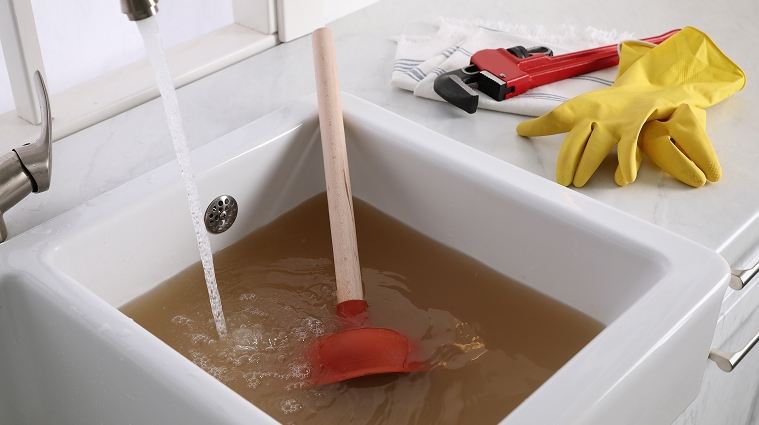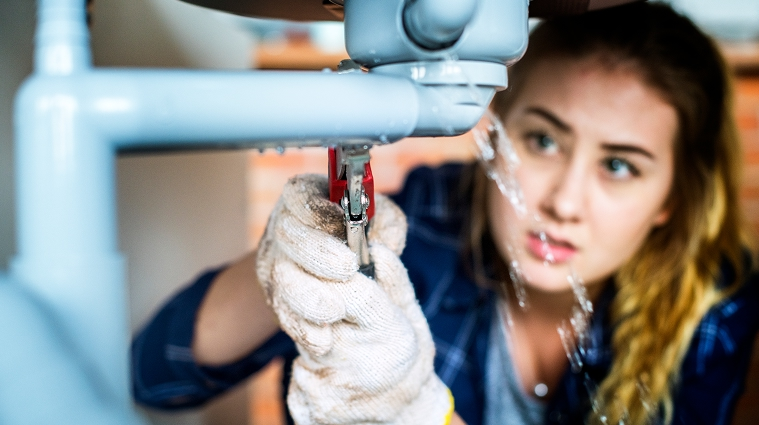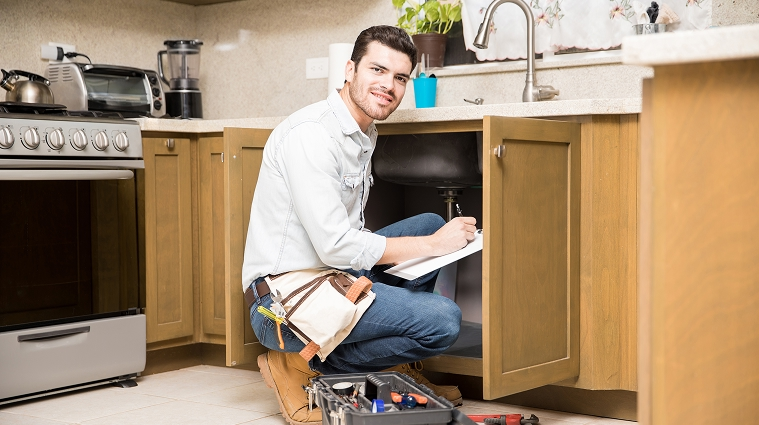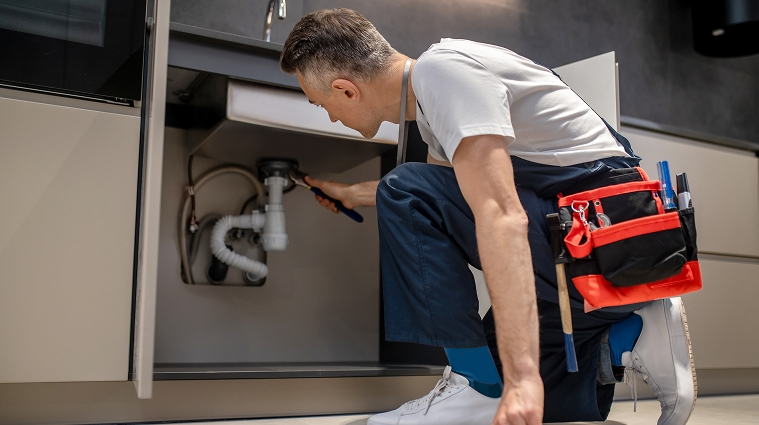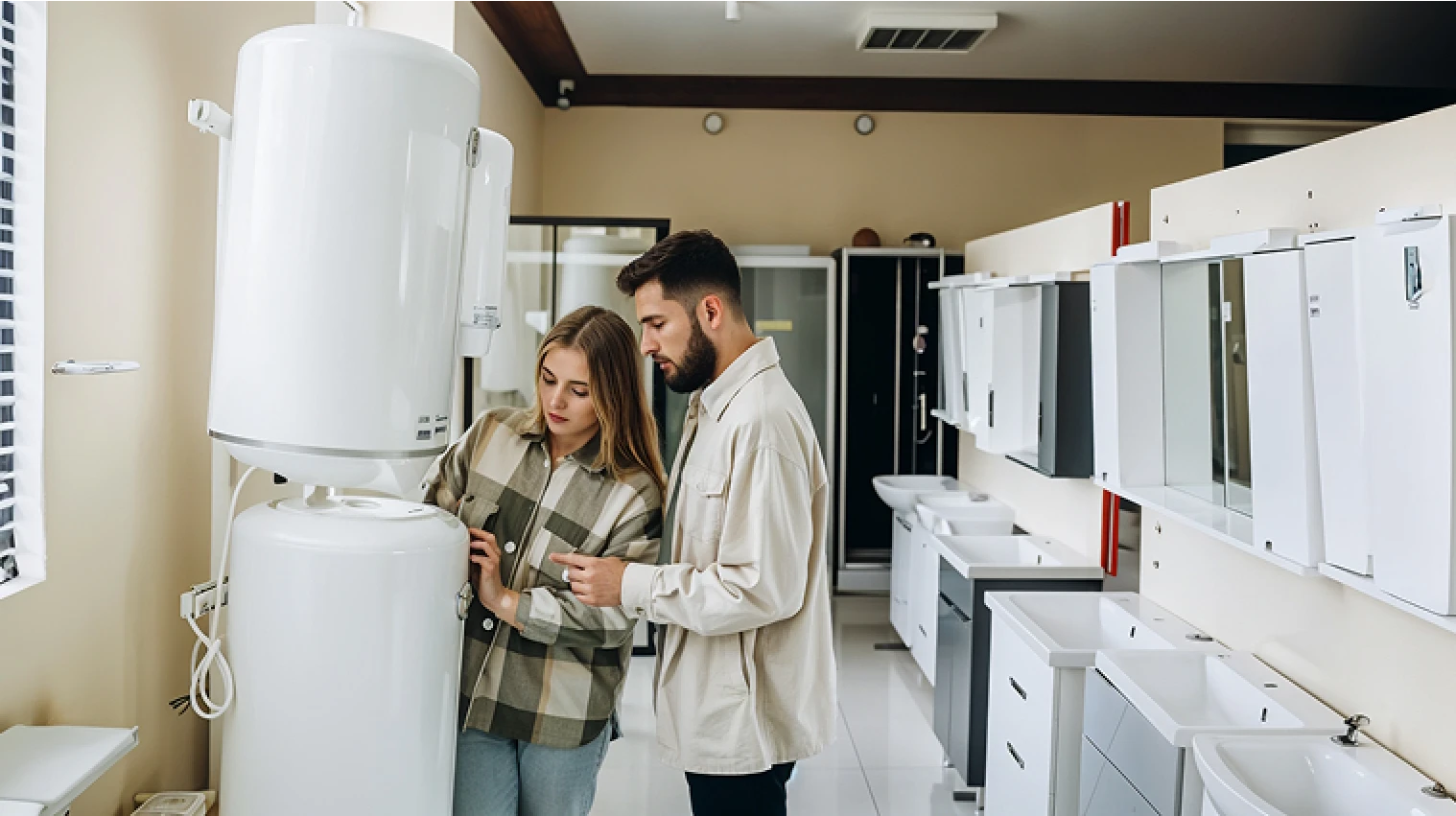Dealing with clogged drains can be frustrating, especially when the problem keeps coming back. If you’ve ever asked yourself, “Why do my drains keep clogging?” you’re not alone.
Many homeowners unknowingly contribute to drain blockages through everyday habits that seem harmless but actually cause long-term plumbing issues.
Persistent drain clogs can lead to costly repairs if left unaddressed. Understanding the most frequent causes and recognizing common drain clogging mistakes can help you avoid the annoyance of a slow or non-moving drain and maintain a clear and functional plumbing system.
Most Frequent Causes of Drain Clogs
1. Grease Buildup
One of the biggest culprits behind clogged kitchen sinks is grease and fat buildup.
When hot grease is poured down the drain, it may seem harmless in its liquid state. However, as it cools, it solidifies and clings to the inner walls of your pipes. Over time, this accumulation narrows the passageway, leading to slow drainage and eventual blockages.
Grease clogs are especially problematic because they accumulate gradually and are often unnoticed until the blockage is severe. Once grease has solidified in your pipes, it is difficult to remove without professional assistance.
What to Do Instead:
- Dispose of grease and cooking oils in a separate container and throw it in the bin.
- Rinse dishes with cold water before washing to prevent any residual grease from liquefying and sticking.
- Use paper towels to wipe greasy pans before rinsing them in the sink.
2. Hair Accumulation
Hair is a primary cause of shower and bathroom sink clogs. As strands collect over time, they bind with soap scum and other debris, forming dense clumps that obstruct water flow.
This issue is especially common in households with multiple occupants or pets.
Bathroom clogs caused by hair can worsen over time if not addressed promptly. Once hair clogs are established, they often require manual removal or professional drain cleaning services to fully clear the blockage.
Preventing Sink and Shower Clogs:
- Install drain covers or hair catchers in showers and sinks to trap loose hair.
- Regularly clean the drain covers to prevent buildup.
- Brush your hair before showering to reduce the amount of loose strands.
3. Flushing Non-Flushable Items
Toilets are designed to handle human waste and toilet paper—nothing more.
Flushing non-flushable items like wipes (even those labelled “flushable”), sanitary products, cotton balls, and paper towels can easily lead to serious blockages. These items do not break down easily and can accumulate in the plumbing system.
Clogs from non-flushable items are particularly problematic because they can cause backups, damage plumbing fixtures, and even impact municipal sewer systems.
What to Do Instead:
- Only flush toilet paper and waste.
- Provide a small bin in the bathroom for other disposable items.
- Educate household members and guests about what can and cannot be flushed.
4. Incorrect Use of Chemical Drain Cleaners
Many homeowners turn to chemical drain cleaners as the best way to unclog a drain, but these harsh products can do more harm than good.
Frequent use can corrode pipes, weaken plumbing systems, and worsen blockages by causing residue buildup.
Chemical drain cleaners pose health risks if inhaled or if they come into contact with skin.
Using chemical drain cleaners repeatedly can also lead to environmental concerns, as these chemicals can contaminate water systems if not disposed of properly.
Better Alternatives:
- Use a plunger or a drain snake to clear minor clogs.
- Professional drain cleaning offers a safer and more effective solution for stubborn clogs.
- Consider natural alternatives, such as a baking soda and vinegar mixture, followed by hot water.
5. Allowing Food Scraps to Enter Drains
While garbage disposals or garburators are useful, they aren’t designed to handle all types of food waste. Starchy foods like pasta and rice, fibrous vegetables, and coffee grounds can create stubborn clogs. Over time, these materials expand and trap other debris, causing significant blockages.
Food particles are a particular issue in older plumbing systems where pipes may already be narrow or partially blocked. Even small amounts of food waste can accumulate and cause drainage issues.
Prevention Tips:
- Scrape plates thoroughly into the bin before rinsing.
- Avoid putting problematic food waste into your garburator.
- Regularly clean your disposal with ice and lemon to prevent odours and buildup.
6. Ignoring Routine Drain Maintenance
Out of sight shouldn’t mean out of mind. Without regular maintenance, even small clogs can escalate into major plumbing problems. Routine drain maintenance is essential to keeping your plumbing system functioning efficiently.
Neglecting drain maintenance can also lead to unpleasant odours and slow drainage, both of which are warning signs of underlying issues that require attention.
Best Practices for Drain Care:
- Flush drains with hot water weekly to prevent buildup.
- Schedule annual inspections with a professional drain cleaning service in Kelowna to keep your plumbing system in top shape.
- Use enzyme-based drain cleaners monthly to break down organic material without harming pipes.
7. Misusing the Garbage Disposal/Garburator
Garbage disposals are convenient but can cause problems if used incorrectly. Certain materials should never be put down the garburator, as they can dull blades or cause clogs.
Common Garburator Mistakes:
- Putting eggshells, coffee grounds, and fibrous vegetables down the disposal.
- Overloading the disposal with large quantities of food at once.
- Failing to run cold water while using the garburator to help flush particles through the system.
How to Use the Garbage Disposal Properly:
- Run cold water for 30 seconds before and after use.
- Feed small amounts of food waste gradually.
- Avoid putting fibrous, starchy, or greasy items down the disposal.
8. Using the Wrong Plumbing Fixtures
Using the wrong type of drain or plumbing fixture can exacerbate clogging issues. For instance, older homes with narrow pipes are more prone to clogs, especially if incompatible fixtures are installed.
What to Consider:
- Ensure plumbing fixtures are compatible with your home’s drainage system.
- Upgrade outdated pipes or fixtures that contribute to frequent clogs.
Contact the Experts for Long-Term Drain Health
To keep your drains flowing freely, adopt proactive maintenance habits and be mindful of what goes down your pipes.
Preventing common drain clogging errors and following these best practices can help you avoid future blockages and keep your plumbing system in good condition.
However, if you’re dealing with frequent clogs, it may be time to seek professional drain cleaning in Kelowna. My Plumber Kelowna offers expert services to restore your kitchen, bathroom, and laundry drains to peak performance, ensuring your plumbing system stays in top shape.
Stop recurring drain problems from disrupting your home. Contact My Plumber Kelowna today for reliable drain cleaning services.



